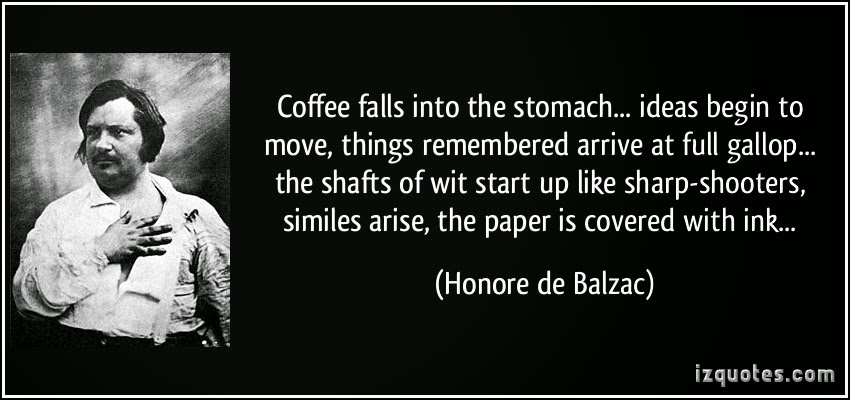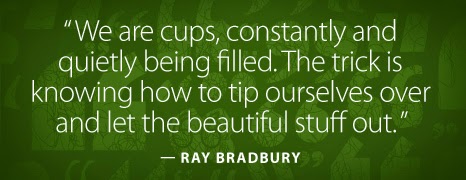Everybody, every writer, has days (or weeks ... sometimes months) when the words and ideas just don't want to come, or flow. A sane person might take this as a sign that they should find some other calling, but writers are driven to get past the slump/block/lull.
I have a bunch of tricks that I use to force myself through the tough stretches, and figured that roughly a week into NaNoWriMo is the perfect time to share them. Explore, enjoy, and feel free to ignore any of them that either don't work for you, or don't appeal (although why not give it a shot, if I you're bogged down).
If I can't write something worth reading, I try to get up and out and do something worth writing about ... a walk in the woods with my dogs, a paddle on a quiet pond with my son, winter-camping with friends, or exploring a ghost-town with dogs/boy/buddies ... all of these make worthwhile breaks from failing at writing, as well as providing good fodder for future fiction.
I have an idea book, and also an app on my iPhone, and I try to have one or both of them with me wherever I go (and whatever I do), just in case an idea strikes and I (wisely) decide not to trust myself to remember it.
I also use them for journaling when I'm having trouble getting my writing started ... this may seem funny (it does to me, and it's me), that I write to help my writing when I can't write, but it's true. I start by writing about my day, my plans for the weekend, the shopping list for recipes that I want to try, and before long a creative thought wanders into my brain and (sometimes) onto the paper, priming the pump for less list-y writing.
I'm generally too much the introvert to be much good in/at face-to-face creative writing classes, but I do enjoy finding this sort of group online, and spend a fair amount of time talking with the people in them for the simple reason that they're crazy in many of the same ways that I am. Sharing my thoughts and problems and hopes and dreams and ideas and plans with a population in similar circumstances is a great way to keep my writing output 'regular' and/or act as a healthy dose of creative-writing fiber (to push the metaphor just slightly too far) to get my head/writing unplugged.
If your significant other comes home, or your parents call, and they find you asleep on the couch, feel free to tell them that I said it was OK ... it won't help, but might give you time to think of something better to say.
I often find that if I run into a roadblock in my writing, that taking a break, sometimes in the form of a short nap, gives the minions in the back of my head the time they needed to figure things out ... this will often allow me to start writing again much more productively than I could have before my nap.
I don't think that it has anything to do with being tired, but is much more about focus and relaxation in problem-solving.
When all else fails, I read. Reading has been a constant source of comfort and refuge and inspiration for me, since long before I became a writer. I generally have a number of books going at any one time, and switch back and forth between them as the mood strikes me.
Besides offering your brain a chance to disconnect from the stress of creative output, reading also (hopefully) provides good exemplars for the sort of work you'll focus on once you're done reading.
I drink coffee when I write ... lots of coffee. I don't do this because I'm tired, lacking sleep, or need to wake up; I do it because the stimulation, the altered state of my consciousness, helps my writing process.
If the flow of my writing is blocked or slow, I generally stop to stretch and make another cup of coffee (maybe two).
I have worked over the years to perfect the proper level of caffeination ... too little and the words stumble over my conscious self on the way out of my brain, too much, and I'm jittery and the writing comes out fast and loose and messy.
I will switch to Coca-Cola on hot days, although the sweetness bothers me in the quantities I like/need to drink.
Sometimes during extreme word-stoppages or when I'm almost done with writing for the day I adulterate my coffee (or coke) with bourbon, which gives both my writing and my caffeinated beverage an interesting flavor.
Writers tend to spend most of their time in one camp of the other when it comes to pre-writing and organization ... I'm an architect, a planner, I like working off of a general plan or roadmap. When I get stuck or stopped in my writing, though, I will often take a hard turn off the map and into the unknown.
The shift will generally jog whatever was jammed loose, and eventually allow me to get back to the story I had planned to tell. Similarly, I would recommend that someone who tends to write by the seat of their pants, but finds themselves temporarily without either seat or pants should try laying out the next few scenes that they want to write in meticulous detail ... whether or not you/they follow through is unimportant, when compared to the hoped-for benefit to your writing of the forced shift in procedure.
During the last few years of writing, I've found a couple of tricks that work for me to help 'tip myself over and let the beautiful stuff out' (as Ray Bradbury puts it). I noticed them working by accident, and while these particular ones may or may not work for you, if you pay attention over time, you'll learn the things that let you tip yourself over.
Going for a drive the window open enough to fill my car with the smell of the world passing by is one. Another is walking with a camera in my hand, looking for pretty things to take pictures of. Experimental cooking (exploring new/weird foods/flavors from the market or the depths of my pantry) also seems to tweak whatever is needed to jostle my brain enough to let spill some of the good stuff when creative writing is tough to do.
The tips above mostly deal with things that I do (to) myself in order to get things moving in a creative sense, but sometimes I can take a hand in things by forcing a change in the story I'm working on.
Everyone knows that 'bad decisions make good stories', but perhaps even more important and interesting is the lesson learned from (or at least offered in) the quote above.
Have a character in your story exhibit bad (even horrific) judgment in some instance that takes place within or outside of the context of your story. The events surrounding their poor judgment will often make for an interesting sidebar, and may even help you understand/form/develop the character (and/or your story) in ways you hadn't imagined previously.
I hope that these tips can help you to climb out of a writing slump, and to keep pushing through to your writing goals for the day/week/month/year!
Thanks,
Jamie










No comments:
Post a Comment